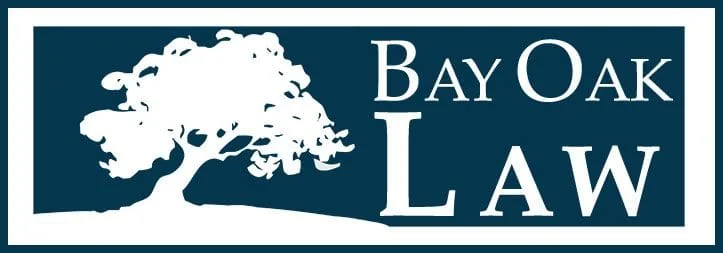- posted: Nov. 22, 2013
- Articles, Business Counseling, Employment, Political
Sharon Adams
Introduction
In January 2012, California created two new state corporate structures: (1) flexible purpose corporations, and (2) benefit corporations. Unlike traditional for-profit corporations, these new corporate structures are required to provide for benefit to the public. Unlike traditional non-profit corporations, these new corporate entities are not tax exempt. These new entities seek to straddle some of the rigid distinctions that existed under the previously permitted corporate structures.
Flexible Purpose Corporations
California was one of the first states to enact legislation permitting flexible purpose corporations. Corporations Code section 2500 et seq. sets out the legal parameters for California flexible purpose corporations. The articles of incorporation for a flexible purpose corporation must include a specific statement that:
“a purpose of the flexible purpose corporation is to engage in one or more of the following purposes…:
(A) One or more charitable or public purpose activities ...
(B) The purpose of promoting positive short-term or long-term effects of, or minimizing adverse short-term or long-term effects of, the flexible purpose corporation's activities upon any of the following: (i) the flexible purpose corporation's employees, suppliers, customers, and creditors; (ii) the community and society; (iii) the environment.” Corp. Code § 2602.
The board of a flexible purpose corporation is required to annually prepare a report to shareholders containing, among other things, a discussion of the short term and long term objectives of the corporation; the material actions taken to achieve its special purpose objectives; the impact of those actions; and the extent to which the actions achieved the special purpose objectives for that year. Corp. Code § 3500(b)
Benefit Corporations
As of the writing of this article, over 30 states have passed or have pending legislation creating the legal framework for benefit corporations. California Corporations Code section 14600 et seq. sets out the legal requirements for California benefit corporations.
In California, a benefit corporation “shall have the purpose of creating general public benefit.” Corp. Code § 14610(a). And, the benefit corporation “may identify one or more specific public benefits that shall be the purpose or purposes of the benefit corporation.” Corp. Code § 14610(b).
Like flexible purpose corporations, benefit corporations have specific accountability requirements. Benefit corporations are required to prepare a public benefit report, assessing the public benefit as measured by an unrelated third-party. In California, benefit corporations must prepare an annual report to shareholders explaining the standard used to measure the public benefit, the process for choosing the third-party evaluator, and the extent of public benefit created. Corp. Code § 14630(a).
B Corporations
B Corporations are a subset of benefit corporations. A corporation designated a “B Corporation” is a benefit corporation that uses a particular third-party, B Labs, as the evaluator. If a benefit corporation receives its third-party evaluation from B Labs, it is a B Corporation.
Thus, all B Corporation are benefit corporations, but not all benefit corporations are B Corporations.
Case Study: Ben & Jerry’s
The sale of Ben & Jerry’s to Unilever is often discussed in the context of Benefit Corporations. The facts show that Ben & Jerry’s stock was initially profitable. However, during the 1990s, it languished, and the stock was trading around $20 per share. Third parties, including Dreyer’s and Unilever, offered to pay substantially more per share to acquire all outstanding stock. Although the owners preferred not to sell, in 2000 Ben & Jerry’s accepted Unilever’s offer, and the corporation was sold.
Since that time, there has been debate among lawyers and others as to whether the company was required by corporate law to accept this offer. But, the fact is that Ben & Jerry’s was a for-profit corporation, bound by for-profit corporate law.
Leo E. Strine, Jr., Chancellor of the Delaware Court of Chancery, stated in “Our Continuing Struggle with the Idea that For-Profit Corporations Seek Profit”:
“[A]s a matter of corporate law, the object of the corporation is to produce profits for the stockholders and that the social beliefs of the managers, no more than their own financial interests, cannot be their end in managing the corporation.”
This is not new law -- as is shown in Dodge v. Ford Motor Co., 170 N.W. 668 (Mich. 1919), where shareholders receiving a regular 60% annual dividend brought suit, and won, against Ford Motor Co. for failing to distribute the maximum wealth to shareholders in the form of a special dividend.
As demonstrated in Dodge v. Ford, corporate law requires maximizing profits to shareholders. This exposes the corporate leadership (and the corporation itself) to potential litigation when some shareholders disagree with decisions made by the corporate leadership. Henry Ford, and the Board of Directors at Ford Motor Co., had a plan to accumulate capital in order to expand production capacity. The higher production of cars would in turn lead to higher profits down the road.
Mr. Ford had good business sense, and Ford Motor Company accumulated capital according to the plan. However, the successful execution of the plan and resultant accumulation of cash proved to be a basis for the court to step in and alter the business plans of the corporation.
The court recognized that Mr. Ford personally was responsible for the phenomenal growth of the business. The court stated:
“Mr. Henry Ford is the dominant force in the business of the Ford Motor Company… A business, one of the largest in the world, and one of the most profitable, has been built up. It employs many men, at good pay.”
Despite Mr. Ford’s successful history in running the business, the court apparently believed it was better able to determine the future business plans of Ford Motor Company. The court reviewed the production plans, including the projected number of car sales and projected price for the cars, and determined that Ford Motor Company should not accumulate cash to increase production capacity. Instead, the court decided that the company should distribute the accumulated cash to the shareholders as a special dividend. This court decision remains good law, and is frequently referenced as a clear example that the primary purpose of a for-profit corporation.
Dodge v. Ford makes clear that the purpose of for-profit corporations is to maximize short-term wealth to its shareholders. Socially responsible purposes are not a relevant consideration when a board of directors makes decisions regarding the future actions of a for-profit corporation.
Returning to Ben & Jerry’s -- after the third-party offers, Ben & Jerry’s stock price rose significantly and the company faced a decision: to accept one of the offers, or to refuse all offers, keep control of the company, and face potential litigation from shareholders claiming that the Board failed to maximize shareholder wealth. In the end, the board of Ben & Jerry’s apparently decided the prudent course of action was to sell.
Note however, that if Ben & Jerry’s had been a benefit corporation or a flexible purpose corporation, other factors related to the special purposes of the corporation could have legally been considered by the board of directors, and perhaps Ben & Jerry’s would not have been sold at that time.
Interestingly, in Oct 2012, Ben & Jerry’s became the first wholly-owned subsidiary of a publicly traded company to become a certified B Corporation.
The newly-formed B corporation now may legally state that one of its purposes is: “To make, distribute and sell the finest quality all natural ice cream and … promoting business practices that respect the Earth and the Environment.”
Conclusion
The primary purpose of a for-profit corporation is as stated in the name -- it is for profit. Case law is clear that a corporate board of directors must make corporate decisions that ensure the primacy of this purpose. Consideration of other purposes, including purposes that benefit the public or the environment, is not permissible in for-profit corporate decision-making.
The sale of Ben & Jerry’s to Unilever illustrates some reasons why a business may prefer to organize as one of these new corporate forms. At the time of the Unilever offer Ben & Jerry’s was organized as a for-profit corporation and it took the prudent course of action -- it accepted the offer from Unilever and distributed the wealth to its shareholders. Now, Ben & Jerry’s, as a subsidiary of Unilever, has re-organized as a benefit corporation and may legally consider environmental factors as part of its business model.
Other business entities may wish to form as a flexible purpose corporation or benefit corporation, to obtain the benefits of corporate law while also pursuing public benefit purposes.
***********************************************************
We are delighted to announce and welcome Sharon Adams as Of Counsel at Bay Oak Law Firm, APLC





